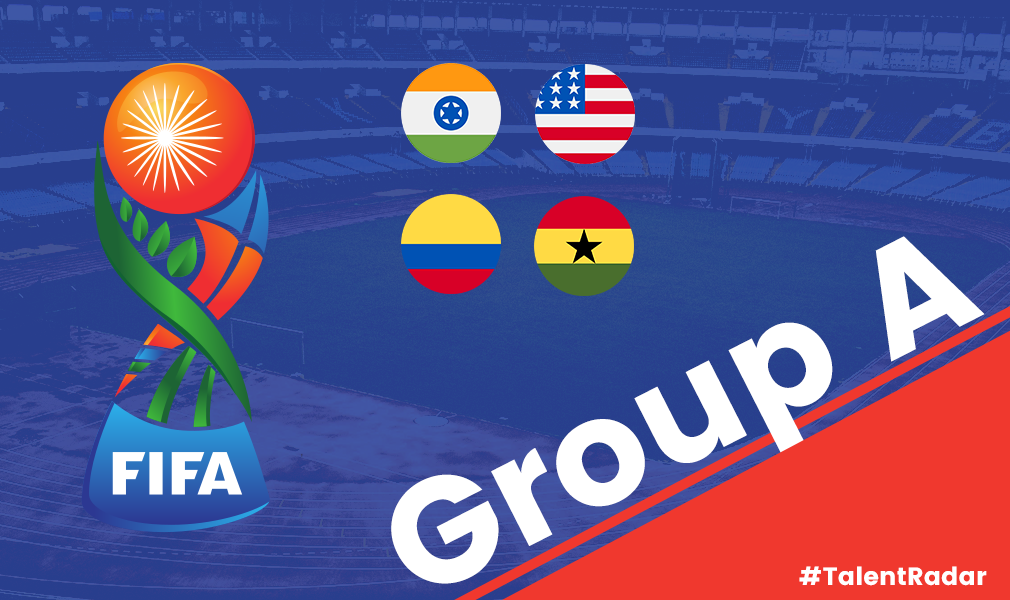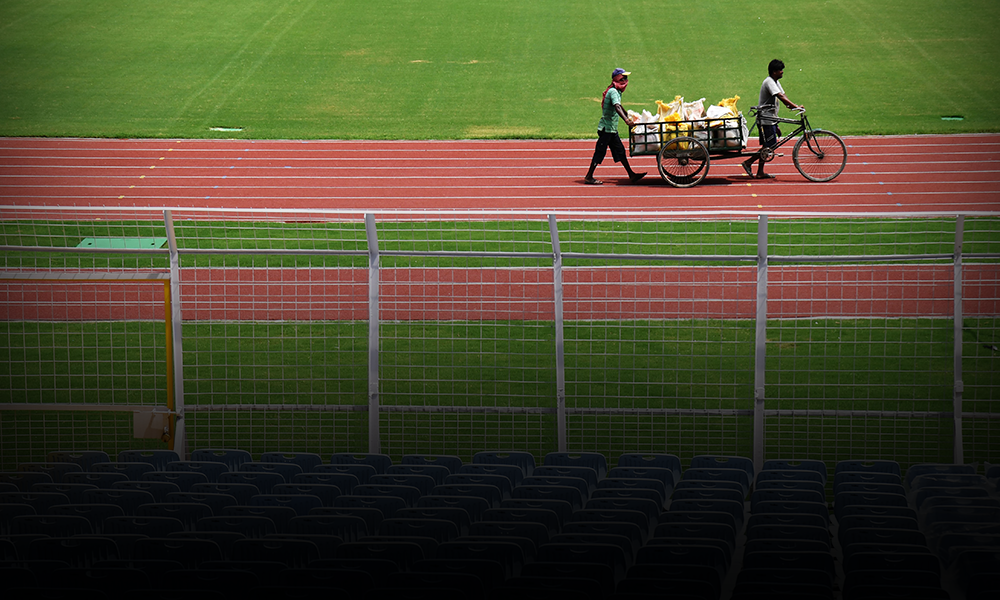Arunava Chaudhuri is a football pundit & personality. He is one of the most well renowned Indian football experts. Besides working for top Indian news agencies, Arunava has also worked for Deutsche Welle (D-W) radio service in Germany. He has regularly contributed to, and participated in, International football conferences including as a speaker at the “International Football Arena” at FIFA house and “Leaders in Football” at Chelsea Football Club. He has interviewed legends like Franz Beckenbauer and also handled media relations for Bayern Munich when they visited Kolkata, India to play Mohun Bagan AC in Oliver Kahn’s last professional game. Besides regular contributions to International competitions and German football, one of Arunava’s biggest contributions was the, now defunct, website Indianfootball.com that was the first website dedicated to Indian football, back when the Internet and websites were just gaining popularity.
Arunanva has a blog dedicated to all things Indian football, you can view it here. You can follow Arunava at @Arunfoot on Twitter and like his facebook page to stay posted on all his updates.
Having spent a lot of your time in Germany, have you developed a following of any specific football club, like you had with East Bengal?
Actually I was born and brought-up in Germany. Since my childhood I have supported my home town team FC Remscheid and Bayern Munich.
What according to you is the better for the Indian national team- foreigners joining the domestic I-League or Indian footballers plying their trade abroad?
A combination of both would be ideal, the better quality foreigners will improve the I-League and also the Indian footballers plus playing for foreign clubs gives our boys an exposure which they wouldn’t get in the I-League
What in your opinion is the main concern for the growth of the beautiful game in India?
There are many to be honest, a whole list of things which need to happen for football to grow and be successful in India. The main thing for me is professionalism in management and administration.
You had arrived in Calcutta more than 20 years ago, how different was the football scene then in the country from now?
I arrived in Calcutta in 1987 and stayed there until 1992. In those days there was no cable television, mobile phone and Internet.
The same can be said about football then, which was overall amateurish with no I-League and interaction between the states and regions as you have nowadays. They didn’t even think about youth development then.
You’re an ardent follower of Indian football, in your opinion, honestly how far off is the country from being a real force in Asia?
We are quite a bit away from the top sides in Asia to be honest. A lot of countries across Asia these days have a system for the senior national team and youth development, which go hand in and hand. That is what India still needs to build.
You have interviewed legends not least of all Franz Beckenbauer. Who was the most impressive interviewee and why?
Difficult to say, then when you interview people you don’t think about what legend you are speaking to, they are just an interview partner.
Surely my first interview for the Deutsche Welle, which happened to be Franz Beckenbauer, was one of the best! It was the first time for me and then him, but it was easy and fun on top of Cologne, on the roof of a highrise.
Football still remains on the back foot when compared to other sports, especially cricket, in India. How important is marketing the sport the right way as compared to improving the infrastructure?
Marketing is surely a key element and the same can also be said about infrastructure. But all elements needed for the development of a sport have to work in tandem.
Important is when it comes to marketing Indian football is to sell a product, which people think isn’t good, has no value. That is a big misunderstanding, which the marketeers need to correct and sell into the market as it should be with the Indian media.
European football is very popular in India with millions of fans tuning in every week to watch their favourite football clubs. Viewers regularly see passionate fans making trips to their club’s stadiums week after week. What needs to be done to implement that football culture in the Indian subcontinent?
The Indian clubs have to do much, much more in regard to fan interaction, facilities at stadiums, making the fans a part of the club.
Also they need to get better television and media coverage; maybe with the exceptions of the Kolkata giants East Bengal and Mohun Bagan.
Pune FC and Shillong Lajong FC are positive examples on this front, but it will take a few years.
The current generation of Indian football has failed on some levels of achieving its goals, what has to be done differently to ensure that the next generation of footballers are able to take the sport to the next level?
Focus on youth development!!! This means world class youth coaches, better facilities, proper scouting and development programmes at the clubs and youth national teams.
We at OOTB constantly write comprehensive Scout Reports on young talented footballers. Which Indian player(s) according to you should we keep an eye on?
There are numerous and to name one would be unfair. I feel that Alwyn George from the Pailan Arrows as a number of his team mates are quite talented, but also there are boys in the Under-19 and Under-16 national teams who could make it.
We have had a lot of talented youngsters in the last 15 years that I have been involved in Indian football, but none had the talent of I.M. Vijayan and the dedication of Baichung Bhutia.
Being a football fans nearly all your life and having watched tons of games, which is that one football moment that stands out for you in your memory?
To pick one is very, very difficult as through my work I have had numerous stand out moments.
My top three surely would be: Germany taking on Poland in the 2006 FIFA World Cup in Dortmund, Oliver Kahn’s farewell match in Kolkata in May 2008, and India taking on Australia in their opening match at the 2011 AFC Asian Cup























































